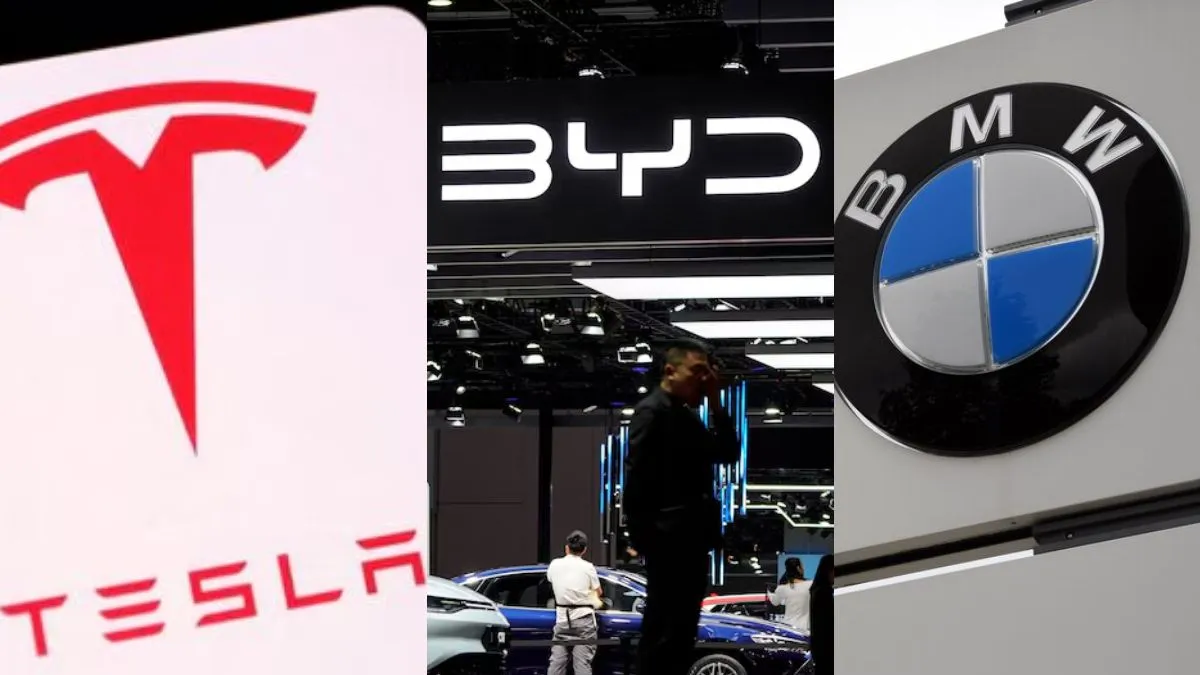- By Talibuddin Khan
- Tue, 02 Sep 2025 03:31 PM (IST)
- Source:JND
GST Reforms: A key panel of the government involved in the review of the GST reforms has reportedly proposed to increase the taxes imposed on the luxury electric cars sold in the country, which are priced above USD 46,000 (Rs 40,55,403). The move can impact the sales of luxury electric carmakers in the country, including BMW, Mercedes-Benz, and BYD.
The move could also impact the prospects of Elon Musk's Tesla, which has opened two showrooms in India recently and is planning to start sales later this year.
PM Modi-led BJP government is eyeing major GST reforms in the country and has proposed sweeping tax cuts to many daily-use items, ranging from soaps, shampoos, to electronics and apparel. The Centre's GST reforms are linked to PM Modi's 'Atmanirbhar Bharat' push, encouraging citizens to use more domestic goods amid soured relations with the US due to high tariffs.
ALSO READ: Govt To Slash GST Rates; Small Cars, Two Wheelers To Become More Affordable: Report
The panel, tasked with making rate suggestions to the GST Council, has called for raising taxes on electric cars, a report by Reuters stated, citing a document detailing the panel's recommendations. The panel has recommended raising the GST to 18 per cent from the existing 5 per cent on EVs priced between Rs 20 lakh and Rs 40 lakh.
The panel further suggested raising the GST to 28 per cent for cars priced above Rs 40 lakh (USD 46,000), saying that such vehicles cater to the "upper segment" of society and are largely imported rather than manufactured domestically. But, the government has proposed to do away with the 28 per cent GST slab, leaving the GST Council with the option to increase the tax on EVs to 18 per cent, or put them in the newly planned 40 per cent category.
"The uptake of electric vehicles is increasing and while, the low rate of 5% is to incentivise faster adoption of electric vehicles, it is also important to signal that higher-priced EVs can be taxed at higher rates," the document reads as per Reuters.
The GST Council - led by the Finance Minister Nirmala Sitharaman and which has members from all Indian states - is meeting on September 3-4 to review the proposals, and has the ultimate authority on decision-making.
Effect On Indian Carmakers
While the proposal could affect domestic EV makers, including Mahindra and Tata Motors, it could also be a game-changer for them to increase their sales domestically. Both Mahindra and Tata produce fewer cars in the high price range (Rs 20 lakh or above), and most of their offerings are between Rs 10 lakh to Rs 20 lakh.
ALSO READ: Two-Tier GST Structure, Special Rates On Select Items: PM Modi's 'Next-Gen' GST Reforms Explained
Foreign automakers offering high-end EVs stand to be hit harder. Tesla just launched its Model Y in India with a base price of USD 65,000 (Rs 57 lakh), while Mercedes-Benz, BMW, and BYD also offer top-end luxury electric cars.
Tesla has opened two showrooms in India in recent months, years after Elon Musk repeatedly criticised high tariffs of roughly 100 per cent on imported cars. The GST tax is applied on top of these tariffs, further increasing the costs of Tesla cars.

